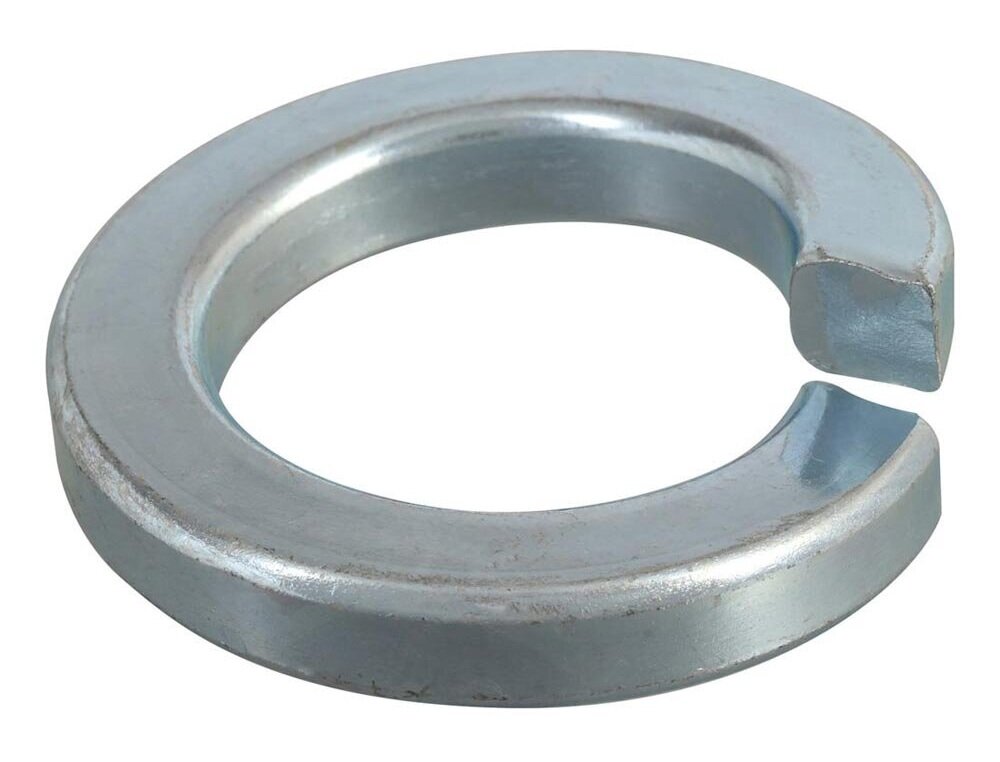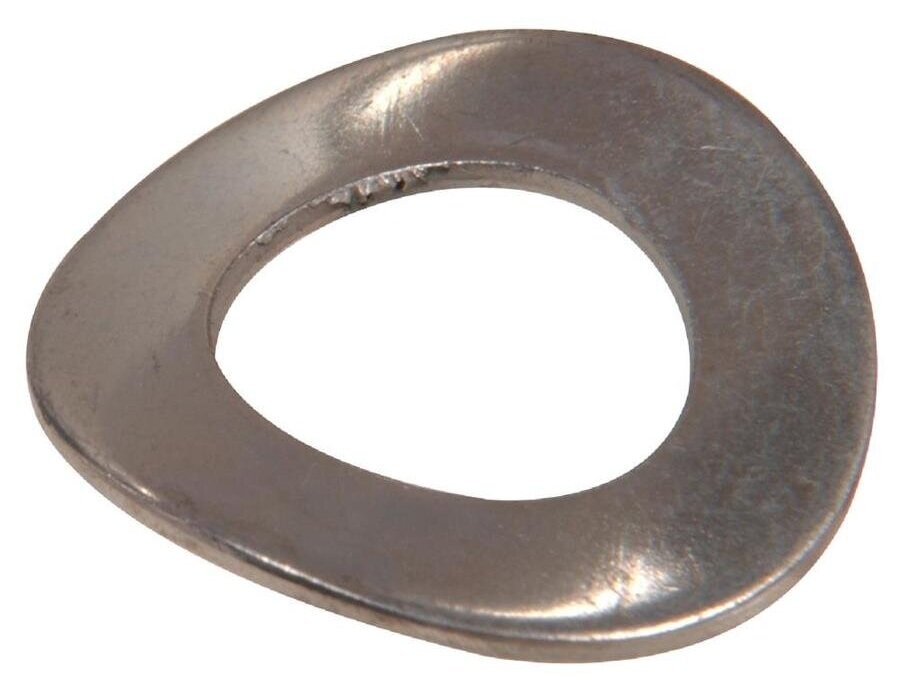Washer Wisdom: Spring Washers
Spring washers have flexibility that is utilized to prevent loosening during vibration. They are “sprung” in order to maintain a consistent preload on the adjacent fastener as the joint experiences movement.
Split Lock Washers (Helical Washers)
Split lock washers, or helical washers, looks like a ring with uneven ends. When tightened, these ends flatten to add tension to an assembly, thereby preventing the joint from loosening as a result of vibration. Split lock washers are used in a wide array of applications, but if your application is likely to experience extreme vibration, it might be better to consider a wedge washer or other type of lock washer.
Conical Washers (Dish Spring Washers)
Known by many different names, including conical spring washers, cupped spring washers, Belleville washers and more, conical washers create a very compact spring due to their shell-like shape. Conical washers are unique in their ability to be stacked, either in the same direction to create increased spring stiffness, or in the opposite direction to create increased range of motion.
Wave Washers
Wave washers have been pressed to create a wavy pattern, which acts as a spring when compressed with a threaded fastener. Due to their relative lightness, wave washers produce low preload forces.
If you have further questions about spring washers, please don’t hesitate to contact us for more information.



